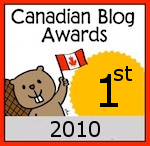Oh hey! Here’s Falco as a disgruntled newscaster. What’s he “reporting”? Well, here’s my (singable!) translation of the lyrics:
On the Run
Say what? Whatchoo say?
West Berlin, 1967
First impression: paddywagon
A roadblock against the madmen
Are you cruisin’ for a bruisin’?
Well, we’ll serve you up a good one, aha
Corner, Joachimsthaler/Ku’damm — an “excess”
The last one to smell the gas
is the first to get due process
All Berlin is one big cloud
Everybody once again on the run
Out, ah ah
Out, ah ah
Out, ah ah
Breakout
On the runZürich, Limmatquai, 1982,
All’s in order, nought’s in place
That’s an end to the disgrace
The taxpayers have won–
No more fires on the lakeshore, aha
The conclusion after 15 years:
You’ve got to keep control
Enjoy noble values
Watch where the monies flow
Throw the noisy rockers out
And renovate the opera house, ahaAnd as for public order,
Everything, thank god, ‘s in order
Just as if all by itself
’cause the strong hand always wins
Holds the fairytale together
And the crooks are on a tether, ahaAs for the future, let me say,
Someone’s bound to come and ask
What the young voters are thinking
Of the powers that control them–
Heavy clouds and thunder-roar
And hey-hey, look who’s now once more
On the run…
So, what’s it all about? He’s comparing two sets of riots in German-speaking Europe, about 15 years apart, and what they mean in terms of what the authorities consider worthwhile (and what the people don’t).
The first broke out in West Berlin in 1967. It was a reaction against the Shah of Iran, whom the student protesters (rightly) called a bloodthirsty dictator and puppet to Anglo-American oil interests. He was in town for a night at the opera — Mozart’s The Magic Flute, as it happens; it was part of a state visit. The authorities smeared the students as “dangerous” and “crazy”. Never mind that a whole world war had been fought against fascism just a generation ago; now it was rearing its oily head again, as it had done back in the day, in reaction to young progressives making noises about justice. The demonstrations were brutally quashed by the German federal police and Iranian SAVAK agents working in concert, and a 26-year-old student, Benno Ohnesorg, was killed. The first lines here refer to “Grüne Minna” (“Green Minna”, German slang for a prisoner transport — comparable to the Anglo-American term for a paddywagon, “Black Maria”) and vast clouds of tear gas in the city centre as the “first impression” the Persian potentate must have seen on his way to the opera house.
The whole scene is representative of German student activism during the 1960s, or rather, of the way the state reacted to it — with repression and force, and dehumanization. Sensitivity? What’s that? They couldn’t even see themselves clearly amid all the tear gas. It looked bad on them to be hosting the Shah, and even worse when it transpired that they’d been working hand in glove with the dictator’s forces to repress dissent in supposedly “free” West Germany. So of course, they had to paint the protesting leftist students as “Spinner” — lunatics. That justified everything, from gassing to beatings to roundups and even murder.
This motif repeats itself in the second part, where the scene shifts to Zürich, Switzerland, 1982. There, the protest was, again, a student demo, this time against a huge allocation of taxpayer money (60 million Swiss francs) to — have you guessed it yet? — renovate the opera house. The city council authorized this expenditure in May 1980, while at the same time refusing to fund an autonomous youth centre. The students were outraged at this instance of bourgeois classism, as one might imagine. In May 1980, following a Bob Marley concert, a riot broke out in front of the opera house. Basel, Bern and Lausanne were all in uproar as well. It was later revealed that the state criminal police were surveilling the protesters and their movements. The scandal reverberates to this day.
There was more at stake than just the odd cultural building here or there; it was a question of whether the older folks wielding all the money and power really listened and gave a damn about what the younger adults wanted. And of course, they didn’t; hence the riots. The response from Zürich, as in West Berlin, was to put the protests down with violence. The autonomous movement was smeared as just a bunch of punks determined to shit the cultural bed — best gotten rid of, the sooner the better. And the crackdown, as in Germany, was out of all proportion to the protests themselves…
Never mind that Mozart and Beethoven were the punk rockers of their day, writing rebellious music that would later be enshrined as high art in the same opera house where the rock rebels of later years would be barred. The blinkered authorities couldn’t draw the parallels, and wouldn’t see that the great composers would, if anything, have sympathized with the young rebels rather than the old bourgeoisie trying to “preserve order” and uphold “noble values”. The hypocrisy is clear, as are the parallels, even 15 years (and longer!) apart.



